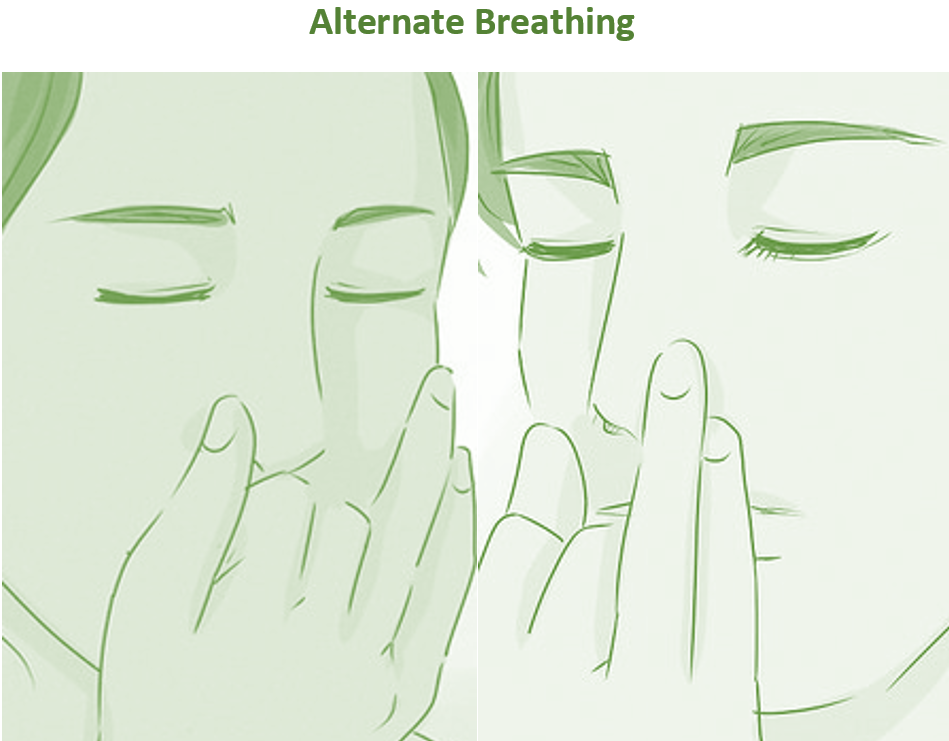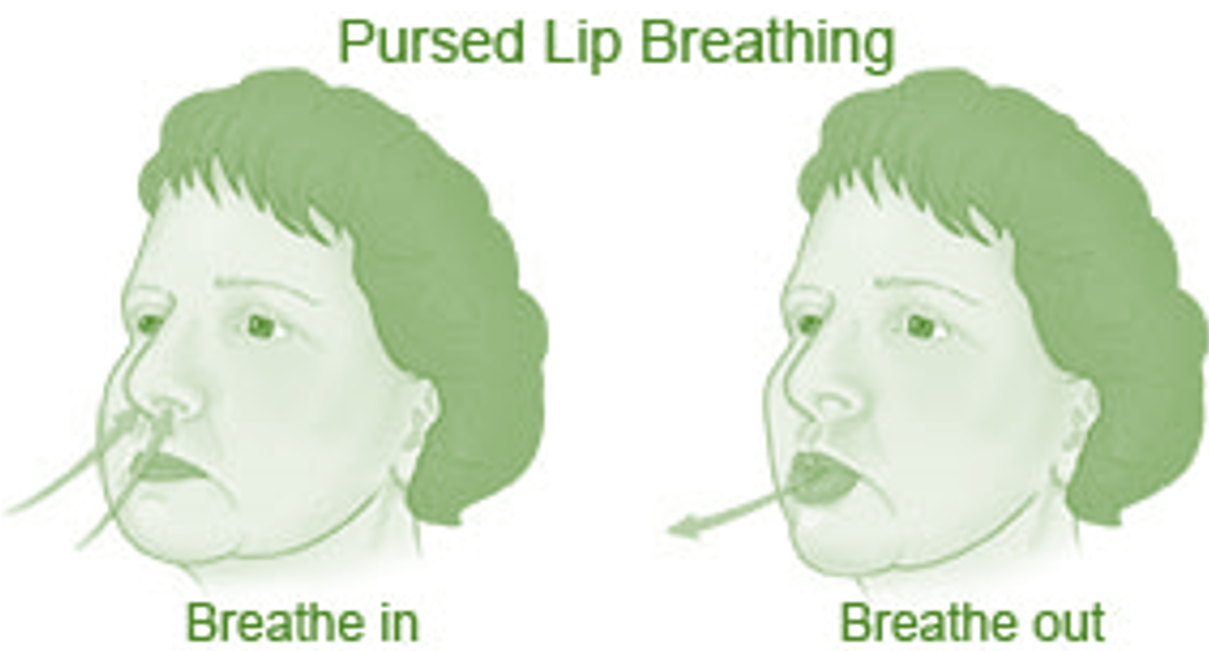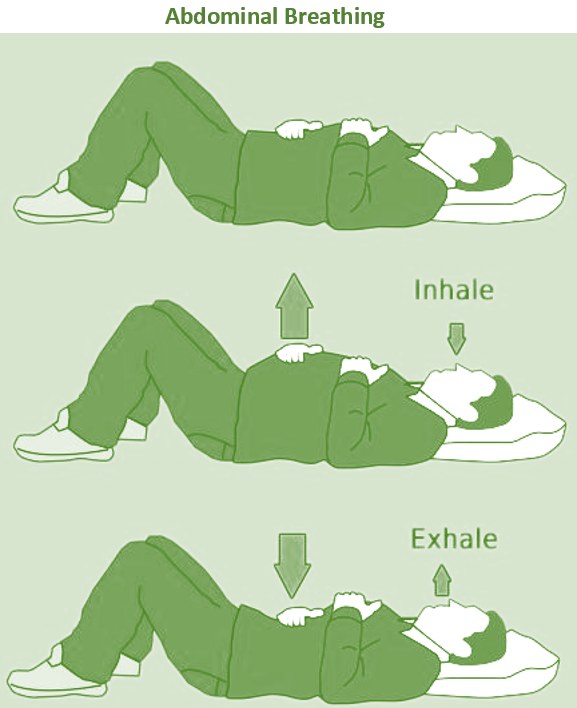The following 3 breathing techniques if practiced regularly can be beneficial for everyone to increase energy, and breath control. It also helps to lower stress, depression, and anxiety, so is beneficial for mental health.
These techniques improve airway and lung function, that can increase resilience against conditions like COVID which affect breathing capacity and blood oxygenation. These are also of immense benefit for people with asthma, chronic bronchitis (COPD), and other respiratory conditions, as well as for snoring and sleep apnea.
The correct technique of breathing is to take air through the nose, first into the belly with the help of the diaphragm (can be felt as the belly rises), followed by inflation of the chest. While letting out air, the chest deflates followed by the abdomen (belly falls/flattens). This technique of breathing is the most efficient, healthy, and physiological. Often in day-to-day life, and especially during high physical activity, stress and anxiety, chest breathing becomes predominant, which is shallow breathing. Consciously practicing abdominal breathing can help improve breathing depth, efficiency, and oxygen utilization, and also help reduce stress, anxiety, and fatigue.
The first 2 techniques are done with complete breathing (abdominal and chest), while the 3rd technique is an abdominal breathing practice.
1. ALTERNATE NASAL BREATHING
Pranayama is a well-known beneficial alternate nasal breathing (anulom vilom) technique. It can be practiced by sitting in a comfortable posture with back straight. Use the right-hand thumb to close your right nostril. Keep the index and middle finger folded (or one can also place them between the eyebrows). Use the ring finger to close left nostril.
Start by first closing the right nostril with the right thumb, and inhale from the left nostril. Then remove the thumb from the right nostril and close the left nostril with the ring finger, and slowly exhale releasing the breath from the right nostril.
Begin this practice for 1-2 minutes daily, and extend gradually to around 5 minutes.

2. PURSED LIP BREATHING
This is a useful breathing technique that helps to slow the breathing rate and reduce breathlessness. First, inhale deeply through the nose, and then exhale through tightly pressed (pursed) lips for at least twice as long as the time taken to inhale. Do this for at least at least 10 times.
This technique is not only helpful as a breathing exercise but may be beneficial during other daily tasks like lifting, bending forward, or climbing stairs.



3. ABDOMINAL BREATHING
It is also called diaphragmatic or belly breathing. It is practiced by lying on the back on a flat surface with knees bent. One hand is placed on the upper chest and the other on the belly.
Breathe in slowly through the nose, letting the air in towards the lower belly. The hand on the belly will rise, while the hand on the chest remains still. Then tighten abdominal muscles taking them inward and breathe out through pursed lips, making the hand on the belly move down to the original position. Do this for at least at least 10 times.



All the above breathing exercises should be done ideally in the morning on empty stomach, or at any other suitable time in the day with a 2-hour gap with meals. Take a 20-second gap after every one minute of practicing any of these exercises, then start again. Initially start with 1 minute, and gradually increase the practice to 5-10 minutes daily.
Alternate Breathing and Pursed Lip Breathing can also be combined or done along with one’s daily meditation practice.
Also read:
Snoring and Sleep Apnea – Causes and Simple Lifestyle Solutions


3 Comments
Read the article again and felt good about its comprehensive and yet easy to understand quality. Can you clarify:
1. Is it ok to exercise early morning on empty stomach?
2. Is swimming good for asthma?
Yes it is fine to exercise in the morning empty stomach before breakfast.
Swimming is a very good exercise for asthma, however the water or the climate should not be too cold, as that can trigger broncho-constriction and breathlessness. Also if you are experiencing acute asthma symptoms, or a cold-cough, then avoid swimming.
Do read my post: https://drvarsha.com/10-points-of-care-during-physical-exercise-for-people-with-asthma/
The blog was a good read and really helpful and I would recommend this to all my friends and peers.